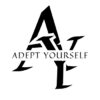Childhood – Questions & Answers
Very Short Answer Questions (1–2 lines each)
- Who is the poet of “Childhood”?
Ans. Markus Natten. - What is the central theme of the poem?
Ans. The loss of childhood and the discovery of self-awareness. - At what age does the poet realise that Hell and Heaven are unreal?
Ans. At the age of eleven. - What did the poet notice about adults?
Ans. They often preach love but fail to practise it. - What change takes place as childhood ends?
Ans. The poet gains rational thinking and self-awareness. - Where does the poet think childhood has gone?
Ans. Into some forgotten place, hidden in an innocent child’s face. - What quality of childhood does the poet value most?
Ans. Innocence. - What question does the poet repeatedly ask in the poem?
Ans. “When did my childhood go?” - Why is the poem written in a reflective tone?
Ans. Because the poet looks back at his lost childhood with deep thought. - What contrast does the poet make between childhood and adulthood?
Ans. Childhood symbolises innocence, while adulthood brings hypocrisy and rationality.
Short Answer Questions (30–50 words each)
- What does the poet mean when he says childhood went when he was eleven?
Ans. At eleven, the poet realised that Hell and Heaven are mere ideas, not real places. This marks the beginning of rational thought and the end of blind belief, symbolising the loss of childhood innocence. - How does the poet describe adult behaviour?
Ans. The poet observes that adults preach love and moral values but do not follow them in practice. This hypocrisy makes him question their honesty and signals his growing awareness of reality. - What does the poet discover about individuality?
Ans. The poet realises that he has a unique identity and mind of his own. This self-awareness separates him from childhood innocence and marks the beginning of maturity. - Explain the significance of the line “It went to some forgotten place.”
Ans. The poet suggests that childhood doesn’t disappear completely; instead, it hides in the innocent face of every child, symbolising purity and simplicity that adults lose as they grow. - Why does the poet feel nostalgic about childhood?
Ans. The poet feels nostalgic because childhood was a phase of innocence, honesty, and pure emotions, unlike adulthood, which is full of complexities, rationality, and hypocrisy.
Long Answer Questions (120–150 words each)
- Discuss the main theme of the poem “Childhood.”
Ans. The poem explores the poet’s reflections on when and how his childhood ended. He identifies different stages—when he stopped believing in imaginary concepts like Heaven and Hell, when he discovered the hypocrisy of adults, and when he realised his individuality. These moments signify the gradual loss of innocence. Markus Natten contrasts childhood’s purity with adulthood’s rationality and dishonesty, questioning the price one pays for maturity. The poem suggests that childhood, though lost, can still be seen in the innocent faces of children. Thus, the central theme is the inevitable transition from innocence to awareness, highlighting the bittersweet journey of growing up. - How does the poet contrast childhood and adulthood?
Ans. The poet contrasts the innocence of childhood with the rationality and awareness of adulthood. As a child, he believed in imaginary ideas and trusted adults completely. However, growing up brought disillusionment—he realised Heaven and Hell were unreal, adults were hypocritical, and individuality set him apart. While childhood symbolised simplicity and purity, adulthood came with questioning, awareness, and complexity. The poet reflects nostalgically, longing for the innocence that adulthood cannot reclaim, though it still exists in other children.
